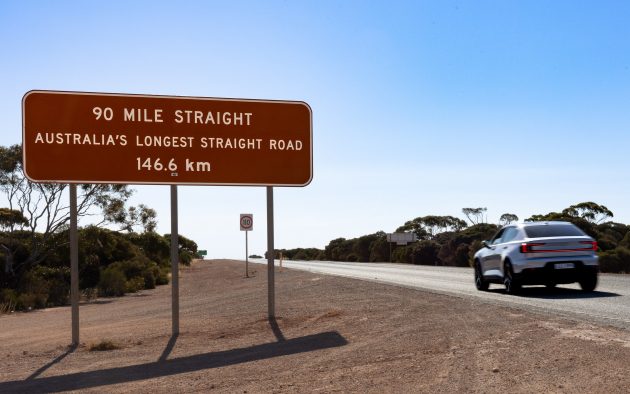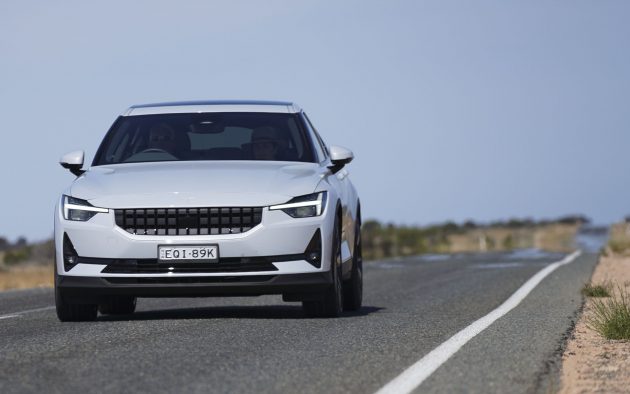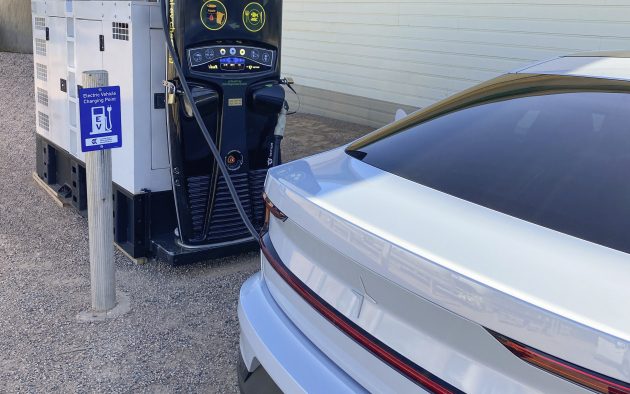A Polestar 2 EV did more than 700km across the Nullarbor Plain between West Australian towns Caiguna and Southern Cross en route to Perth in a successful trial charging from self-contained BiØfil fast chargers powered by waste vegetable “chip” oil from the Caiguna roadhouse.
The test was done prior to the Polestar 2 going on sale in Australia in February, with reservations able to be made here.
The BiØfil fast-charging system comes from retired engineer Jon Edwards who identified that the proposed EV highway in Western Australia left a gap on the Nullarbor which could impact the ability to drive an EV around Australia.

Premium Swedish EV brand Polestar tested the world-first EV fast-charging system connecting Western Australia to South Australia, the Caiguna Roadhouse charging point 370km east of Norsemen and 370km west of the South Australian border.
YOU MIGHT ALSO LIKE
- No Sunday trading for Queensland dealers
- Toyota says future outlook remains uncertain
- Tesla tops Australia’s new EV sales
This halfway point offers sustainable charging that effectively plugs the gap, allowing EV owners to traverse the Nullarbor, Polestar says.
BiØfil extracts energy from waste oil using a generator, but is an entirely net-zero exercise, with no incremental impact on the environment.
The vegetable oil for the fryers comes from seed crops such as canola and sunflower which absorb CO2 and sunlight, and the CO2 produced to power the charge system is the equivalent to CO2 absorbed.

“Polestar is thrilled to share its passion for innovation and sustainability with visionaries like Jon Edwards,” Polestar Australia managing director Samantha Johnson says.
“To turn a waste product into a CO2-neutral charging solution, which connects Australian EV owners from the east with the west, is the sort of ingenuity that has led to so many Australian innovations.”
BiØfil inventor Jon Edwards adds: “The cost of installing an equivalent solar-powered EV fast charger is over five times the cost of building the BiØfil fast charging unit.
“Solar energy would not have been economically feasible for such a low traffic location, making BiØfil the environmentally friendly interim solution for EVs driving across the Nullarbor right now.”
In partnership with University of Western Australia, a Chuffed crowd-funding campaign for the BiØfil units is called “The big lap has gaps”, with the UWA intending to collect usage data.
Article written by AutoTalk

